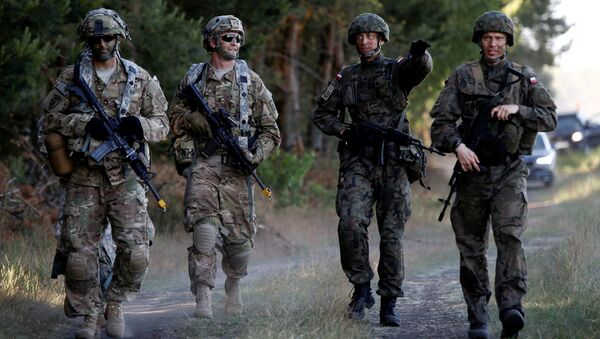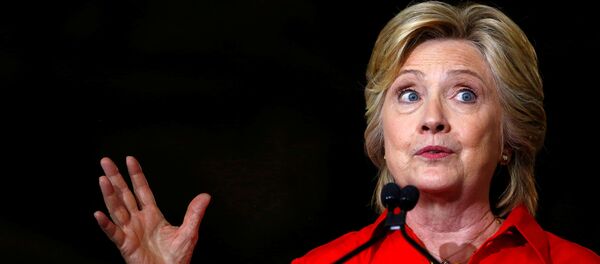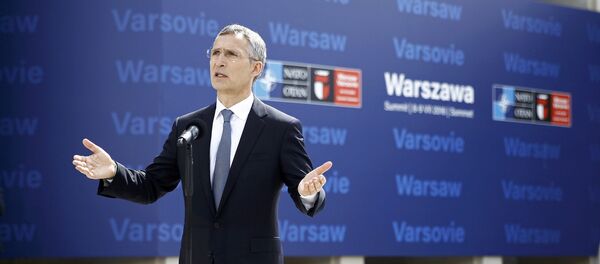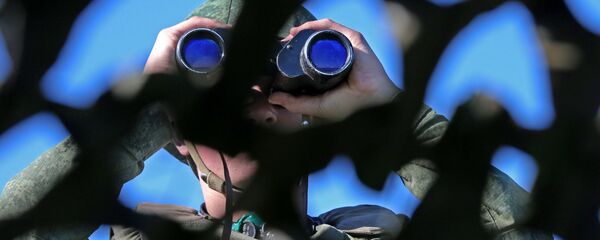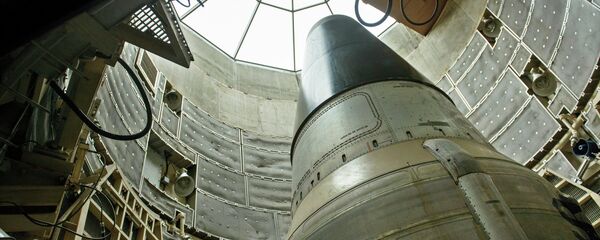NATO member states are watching the Alliance's muscle-flexing near Russia's borders with growing concern, Turkish scholar and author Haydar Cakmak writes in his op-ed for Yenicag Gazetesi.
"There are no doubts that NATO's anti-missile defense system elements, which are deployed in Poland and Hungary to protect the European territories against attacks from the Middle East… are aimed against Russia," Cakmak underscored adding that the installations are triggering concerns among NATO European members, most notably, France and Germany.
"In order to harass and intimidate Russia, the US-led NATO alliance is conducting some military activities," the Turkish scholar underscored referring to the bloc's Anaconda-2016 joint military drills, which were kicked off on June 5 in Poland, bringing together 31,000 troops from 24 states, including such non-aligned countries as Ukraine and Georgia.
"These military exercises were regarded as threat to Russia and Russia was concerned with these drills," Cakmak highlighted.
In addition to Anaconda exercises, BALTOPS 16 (Baltic Operation) was conducted in the Baltic Sea in June, involving 6,000 troops, 45 war planes and 60 war ships from 15 states. The Turkish scholar drew attention to the fact that the maneuvers were also targeted at Russia.
Furthermore, NATO's Airborne Warning and Control System (AWACS), deployed at the Turkish Incirlik airbase, is monitoring the situation in Iraq and Syria.
"Russia and regional players, especially Turkey, are very disturbed about this monitoring and are skeptical about these [NATO] activities," Cakmak emphasized.
While Washington is portraying Russia as a threat and an uncooperative actor, Germany and France are expressing their anxiety in regard to the US' political course toward Moscow.
Cakmak cited German Foreign Minister Frank Walter Steinmeier, who noted that security in Europe could be achieved only in cooperation with Moscow and denounced the Alliance's drills near Russia's borders as "saber-rattling."
"What we should not do now is inflame the situation with loud saber-rattling and war cries," Steinmeier told the German newspaper Bild am Sonntag, as cited by Reuters.
"Whoever believes that symbolic tank parades on the alliance's eastern border will bring more security is mistaken. We are well-advised not to create pretexts to renew an old confrontation," Steinmeier added.
"Russia's pushback against the West's expansion of influence — in Georgia in 2008, in Ukraine in 2014 — suddenly gave NATO a renewed sense of purpose (or dusted off an older one)," Feffer wrote in his article for online media outlet LobeLog.com, adding that beating back Daesh in Syria and Iraq "provided yet another raison d'etre" for the bloc.
"Robust threats and eager aspirants: NATO would seem to be experiencing a veritable rebirth. Yet, despite these consolidating forces, the alliance is coming apart at the seams. It faces considerable dissension among its ranks," the American journalist underscored.
On the one hand, Turkey has been proven to be a rather unpredictable and hard ally, he noted. On the other hand, a chorus of Eastern European states, such as the Czech Republic, Slovakia, Greece and Hungary are discontent with the EU-NATO anti-Russian sentiment.
"Much of the EU has expressed skepticism about provoking conflict with Russia. At the recent NATO summit, according to The Financial Times, Greek leader Alexis Tsipras said that it was time to end the impasse with Moscow," Feffer highlighted.
"However, Trump's questioning of NATO does reflect a certain ambivalence in the US public about the alliance," he added.
Feffer referred to the Pew Research Center's July survey which indicated that 16 percent of American respondents believe that being a member of NATO is "bad" for the US, while 7 percent are not sure that it is "good."
At the same time, 37 percent of US respondents would not support the invocation of Article 5 to defend fellow NATO members in the event of a Russian attack, the American journalist emphasized.
"It's hard to turn over a heavy object like NATO to read its expiration date," he remarked, " Right now, the marriage of interests holds, barely. But don't count on NATO making it to its platinum anniversary in 2019 in any mood to celebrate."
